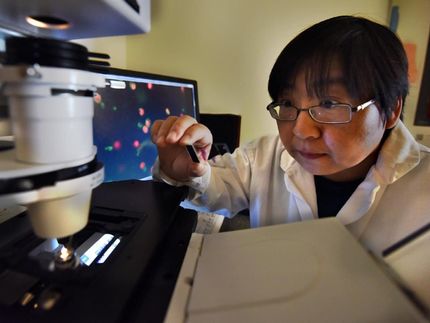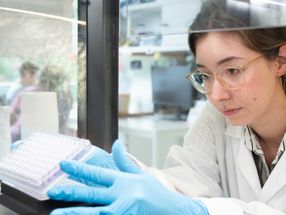Dow and Sunol to collaborate in plant-based production of antibody for treating cancer
Studies will compare plant-based and mammalian cell production
Advertisement
The Dow Chemical Company and Sunol Molecular Corp. have signed a collaborative research agreement to produce a therapeutic protein in transgenic plants and compare its properties with those of the same antibody produced in mammalian cell culture. The companies announced the agreement today.
Under the agreement, Dow will express in plants an anti-tissue factor antibody developed by Sunol for treatment of multiple types of cancer. The objective of the collaborative research agreement is to compare and contrast the efficacy of the Sunol antibody as produced through plant technology and mammalian cell technology. The research will specifically look at glycosylation, in vivo testing, and effector function. Knowledge gained from the work is expected to demonstrate the utility of plant production for injectable biopharmaceuticals. The agreement includes an option for Dow and Dow AgroSciences to evaluate the antibody as a cancer treatment for companion animals. No financial details are being released.
"Dow Plant Biopharmaceuticals is pleased to be working with a biotechnology company of the scientific caliber of Sunol Molecular," said Carolyn Fritz, Global Business Director for Dow Industrial Biotechnology. "We believe Sunol's antibody is an excellent candidate to demonstrate the efficacy of plant-produced antibodies."
Large-scale production economies
"We see potential value in plant-based techniques to provide good large- scale production economies, particularly useful for antibodies requiring large dosing and multiple indications," said Dr. Hing Wong, Sunol's CEO. "Determining bioequivalence through in vivo comparison will be necessary to validate this emerging technology. We are excited about combining expertise and proprietary technologies from Sunol in tissue factor antagonists and from Dow in transgenic plant production to accomplish this important step."
Sunol's anti-tissue factor antibody
Over 90% of cancers express tissue factor, which facilitates tumor growth and tumor metastasis. This makes cancer an attractive target for anti-tissue factor antibodies. Sunol's anti-tissue factor antibody inhibits activities attributed to tissue factor and also provides a cytolytic effect to help destroy the target cancer cells. "Results from pre-clinical studies using human cancer cells introduced into mouse models are very encouraging," said Dr. Wong.
Other news from the department business & finance
Most read news
More news from our other portals
See the theme worlds for related content
Topic world Antibodies
Antibodies are specialized molecules of our immune system that can specifically recognize and neutralize pathogens or foreign substances. Antibody research in biotech and pharma has recognized this natural defense potential and is working intensively to make it therapeutically useful. From monoclonal antibodies used against cancer or autoimmune diseases to antibody-drug conjugates that specifically transport drugs to disease cells - the possibilities are enormous

Topic world Antibodies
Antibodies are specialized molecules of our immune system that can specifically recognize and neutralize pathogens or foreign substances. Antibody research in biotech and pharma has recognized this natural defense potential and is working intensively to make it therapeutically useful. From monoclonal antibodies used against cancer or autoimmune diseases to antibody-drug conjugates that specifically transport drugs to disease cells - the possibilities are enormous


























































